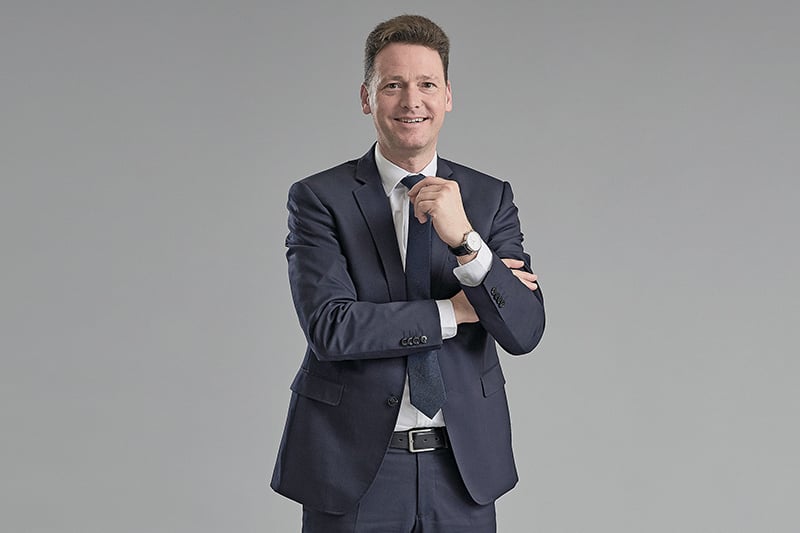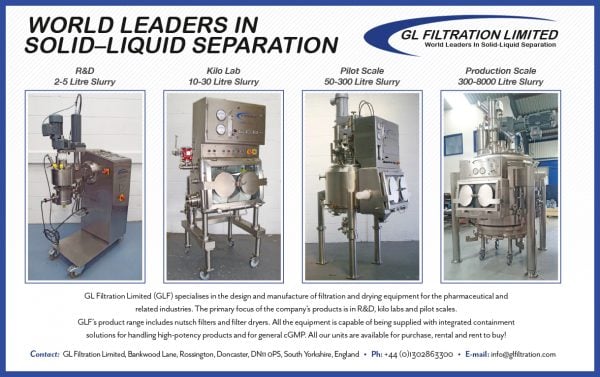The last place a pharma company wants to be is relegated to the sidelines in the race for a COVID-19 vaccine. For those in the thick of the action, however, there’s no time to pause for breath.

“Our main challenge at the moment is how we can effectively contribute to the development of COVID-19 vaccines or treatments, in a fast and efficient manner,” explains Dr Michael Quirmbach, President and CEO of CordenPharma.
It’s a name that has been in the headlines recently, thanks to its involvement with American biotechnology company Moderna’s mRNA-1273 vaccine candidate for COVID-19 – at the time of writing, the vaccine was passing through stage-three trials, having received almost US$2.5 billion (€2.1 billion) in US government funding.
CordenPharma was awarded the contract to supply critical lipid excipients for the formulation. While the manufacturing of lipids is one of the core competences of the company, Michael describes the speed with which this project has been scaled up as unprecedented.
“Of course, it’s a major challenge to meet these demands,” he says. But it doesn’t get much bigger than the opportunity to crack the code on a virus that has brought the world to a standstill, so you won’t hear Michael complaining if he misses his annual surfing pilgrimage to Portugal this year.
A chemistry graduate, he has a PhD from the Max Planck Research Group at the Institute for Organic Catalysis Research in Rostock, Germany. He joined CordenPharma in 2014, first as Chief Business Officer before being appointed to his current role in August 2019. These are the career moments he lives for.
As a member of the executive leadership team, Michael has played a critical role in reinforcing CordenPharma’s reputation as a trustworthy and world-class contract development and manufacturing organisation (CDMO) to the pharmaceutical industry.
Established in 2006 as the global pharmaceutical service and manufacturing platform of the International Chemical Investors Group (ICIG), today the company has nine sites across Europe and the US, and about 1,900 employees.
How would Michael describe his leadership during the pandemic?
“It’s important to have the ability to clearly communicate and work across a broad network with different cultures, as everyone reacts and acts differently,” he says. “It is also important to work collaboratively; to have the ability to listen and then make decisions.”
A structure of four technology platforms comprises its core focus: Peptides Lipids & Carbohydrates; Highly Potent & Oncology; Injectables; and Small Molecules. Its mission is to turn complex processes, ideas and projects into high-value pharmaceutical products. “We have grown significantly over the past few years,” Michael says.
“When I joined six years ago, our revenue was around €245 million. Last year, we closed at €387 million and we are projecting this year to be at €450 million.” In joining CordenPharma, Michael recognised the potential to build something great out of the company.
“When ICIG approached me, I saw that the company was lacking somewhat in PR and commercial strategy, and also direction,” he explains.
“If we go back to a year ago, when the shareholders asked me to become CEO, I thought it was a fantastic opportunity to develop this company even further and have a much larger impact by positively directing and clearly articulating our vision.”

He says that it’s the quest for continuous improvement within the company that keeps him driven, as does the desire to serve clients and patients, who are of paramount importance. Current areas of particular focus – coronavirus vaccine aside – include its Highly Potent & Oncology technology platform for the manufacturing of active pharmaceutical ingredients (APIs) and drug products.
“These have never been on the market and involve a very complex manufacturing process,” Michael says. “As a CDMO, we create value for our clients by turning something that has been developed in R&D into a commercial product.”
We want to be the leader in providing integrated supply solutions for our technology platforms, as this will help pharma companies to accelerate their development.
In its customer relations, the business is moving away from transactional relationships to more strategic ones, where broader collaborations are promoted to create robust, effective and long-term partnerships. “We have been good at listening to our customers. I think it is one of our strengths,” Michael says.
“And we are good at making fast decisions.” This is something that is not lost on Moderna. “I was on a call with them a few days ago and they told us that we have really surprised them with our ability to deliver the quantities in the promised time frame,” he says.
There are still areas where Michael sees room for improvement, however: talent management is one. “It’s something where, in the past, we haven’t done the best job,” he admits.
“But implementing talent management processes and providing opportunities across our network is now top of our list. Of course, there’s the question eternally on an executive’s lips: how can we do things faster and cheaper to be more reliable?
“On the other hand, we want to be the leader in providing integrated supply solutions for our technology platforms, as this will help pharma companies to accelerate their development. If we get this right, then we will add real value to the patients by bringing new medications faster to the market. I think that’s really what drives us.”
Proudly supported by:



